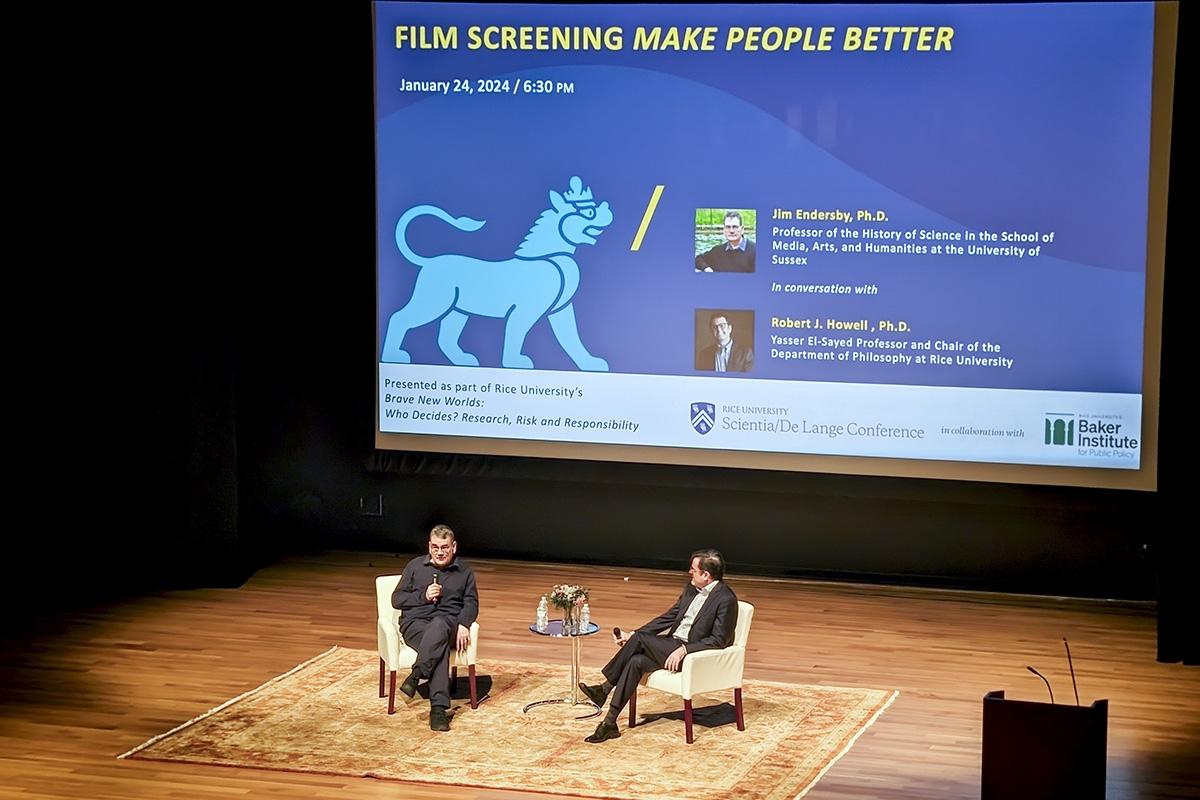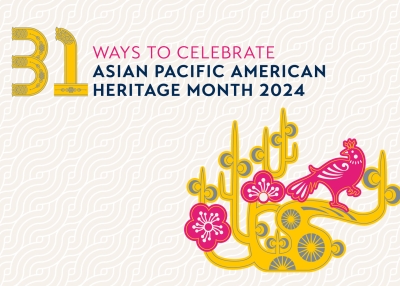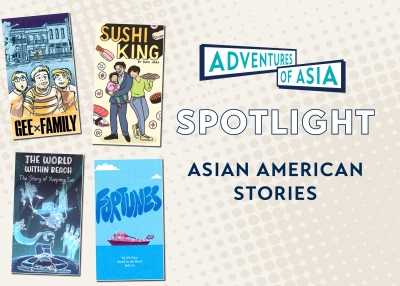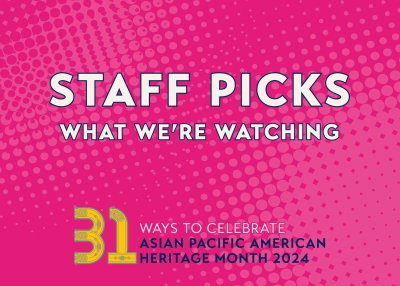Questions on Genome Research, Ethical Considerations Arise in Screening of Documentary ‘Make People Better’

HOUSTON, February 19, 2024 — As part of the Brave New Worlds: Who Decides? Research, Risk, and Responsibility conference, Asia Society Texas hosted a screening of the documentary Make People Better, which chronicles the work of Shenzhen biophysicist He Jiankui who gained notoriety as the first scientist to genetically edit human babies. The film delves into the complex ethical considerations surrounding genomic science and the dynamic debate within the scientific community regarding cutting-edge discoveries and biotechnological advancements.
Help Us Build a More Inclusive World
Following the screening, Jim Endersby, Ph.D., Professor of the History of Science at the University of Sussex, and moderator Robert J. Howell, Ph.D., Yasser El-Sayed Professor and Chair of the Department of Philosophy at Rice University, spoke on the film's themes and shared insights on gene-editing technology and its implications on the future of healthcare.
Endersby and Howell considered the inevitability of progress in genetic research and raised questions regarding ethical frameworks that may shape these advancements. Central to these ponderings were the ethical implications of utilizing genome editing technology for purposes beyond therapy, such as enhancing physical traits, and the potential risks of misuse.
To emphasize the multifaceted nature of genetic technologies, Endersby highlighted the complexities surrounding its costs, risks, and benefits, as well as the inheritable nature of genetic modifications. He underscored the rarity of unproblematic technological advancements, noting the intrinsic relationship between technological progress and accompanying ethical and social considerations. As an example, Endersby referred to emerging conversations that challenge the definitions of "normal" and "healthy," and cautioned against certain narratives that could mirror eugenics ideology. Ethical considerations around informed consent for clinical trials — particularly those involving the creation of new life — were also addressed by the speakers.
In their final reflections, the speakers stressed the importance of robust ethical deliberation alongside scientific research, advocating for a broader discourse that encompasses humanity's responsibilities and rights and urging the scientific community to cultivate an ethos that extends beyond technical proficiency and embraces philosophical and social considerations.
The Brave New Worlds conference is supported by Rice University's Scientia/De Lange Conference XIII, in collaboration with the Baker Institute for Public Policy.
About Asia Society Texas
Asia Society Texas believes in the strength and beauty of diverse perspectives and people. As an educational institution, we advance cultural exchange by celebrating the vibrant diversity of Asia, inspiring empathy, and fostering a better understanding of our interconnected world. Spanning the fields of arts, business, culture, education, and policy, our programming is rooted in the educational and cultural development of our community — trusting in the power of art, dialogue, and ideas to combat bias and build a more inclusive society.




